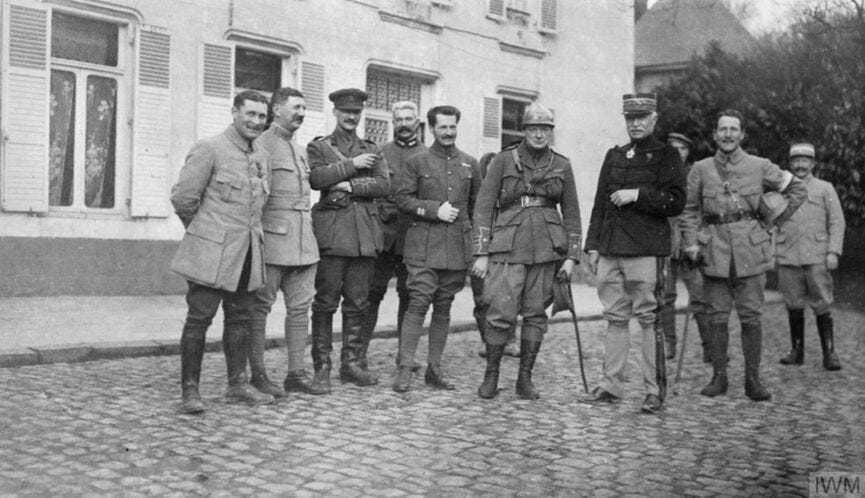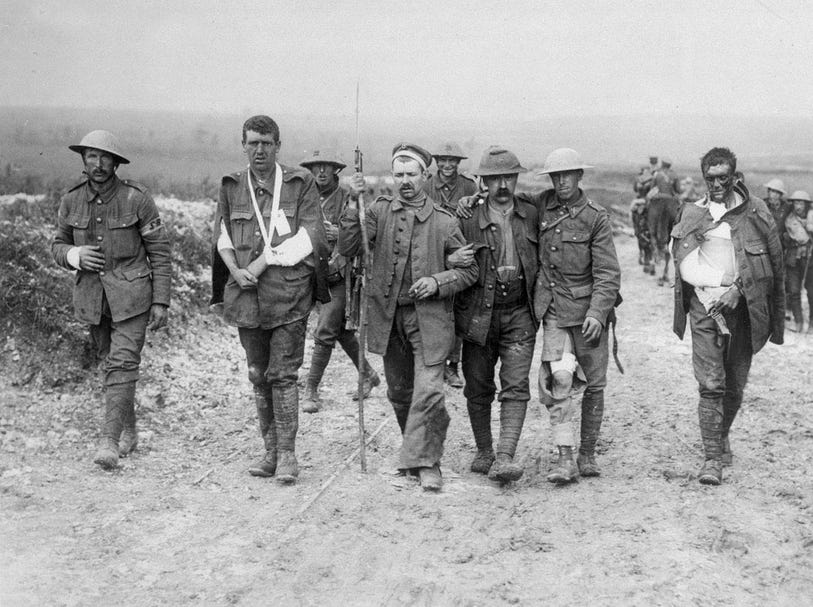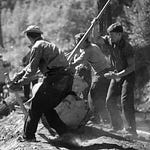Through failure and defeat.
It is late 1915.
After six months of fighting, the front lines in France have not moved despite heroic efforts.
The stalemate, costing so many lives, had to be broken.
So, British and French war planners devise an audacious military campaign.
They turn their attention to the southeast and plan an attack on Germany’s ally, the Ottoman Empire, which had seized control of the Dardanelles, the sixty-mile strip of water which divides Europe from Asia.
Under this plan, the Allies would seize control of the waterway and occupy the Ottoman capital of Constantinople (now Istanbul), knocking the Ottoman Empire out of the war and weakening Germany.
The Allies could then open a supply route to Russia through the Dardanelles, bolstering its fight against Germany on the eastern front.
If this plan were successful, the war would be shortened, and many lives would be saved.
It was grandiose, involving 480,000 troops from the Allies’ navies and armies.
But the plan failed.
It was hampered by poor planning, rough terrain, and logistical troubles.
And, in the Ottoman Turks, the Allies faced a tenacious and well-led enemy.
The losses were staggering.
Casualties claimed more than half of the Allied troops committed to the campaign, including 46,000 dead.


While the mistakes of many men contributed to the failure of the Dardanelles campaign, it was Winston Churchill who became the public face of the disaster.
As Lord of the Admiralty, he had devised Britain’s naval strategy in the campaign and had also participated, to a lesser extent, in the planning of disastrous landings on the Gallipoli peninsula.
Churchill was demoted to a lesser government position.
Angry and in despair, he quit the government, reenlisted in the British army, and became a battalion commander in the trenches of northern France.

Churchill would serve there for four months.
He was then 41 years old.
From a letter to his cousin:
“There is a constant spice of danger. Daily shells, some very near; & a certain amount of risk in moving about by day and night…
“For one hour… we were involved in a sharp cannonade and I suppose certainly a score of shells burst within 30 yards of us, covering us with dirt and debris.
“I have also had my tiny dog hole where I sleep in the line smashed up by a shell which had it detonated perfectly would have been the end of my chequered fortunes.
“One becomes quite reconciled to the idea of annihilation, & death seems to be divested of any element of tragedy.
“The only thing to dread is some really life wrecking wound which left one a cripple, an invalid, or an idiot.” — January 12, 1916
Churchill would return to Parliament and serve in several positions in a new British government.
He reflected on the catastrophic losses of the war in memoirs written six years later.
The blame, he said, lay at the feet of Allied war planners.
“No war is so sanguinary [murderous] as the war of exhaustion.
“No plan could be more unpromising than the plan of frontal attack.
“Yet on these two brutal expedients the military authorities of France and Britain consumed, during three successive years, the flower of their national manhood.
“Moreover, the dull carnage of the policy of exhaustion did not even apply equally to the combatants…
“Two, and even three, British or French lives were repeatedly paid for the killing of one enemy,
“and grim calculations were made to prove that in the end the Allies would still have a balance of a few millions to spare.
“It will appear not only horrible but incredible to future generations that such doctrines should have been imposed by the military profession upon the ardent and heroic populations who yielded themselves to their orders.” — The World Crisis, 1923
These lessons would guide Churchill as he replaced Prime Minister Neville Chamberlain, the appeaser, in 1940 and led Britain through the new world war.
Why do I revere Churchill?
He persevered through failure and defeat.
********************************
I’ll see you on Monday.
— Brenda
























Share this post